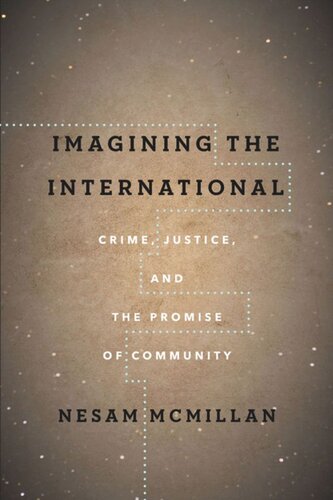

Most ebook files are in PDF format, so you can easily read them using various software such as Foxit Reader or directly on the Google Chrome browser.
Some ebook files are released by publishers in other formats such as .awz, .mobi, .epub, .fb2, etc. You may need to install specific software to read these formats on mobile/PC, such as Calibre.
Please read the tutorial at this link: https://ebookbell.com/faq
We offer FREE conversion to the popular formats you request; however, this may take some time. Therefore, right after payment, please email us, and we will try to provide the service as quickly as possible.
For some exceptional file formats or broken links (if any), please refrain from opening any disputes. Instead, email us first, and we will try to assist within a maximum of 6 hours.
EbookBell Team

4.7
36 reviewsInternational crime and justice are powerful ideas, associated with a vivid imagery of heinous atrocities, injured humanity, and an international community seized by the need to act. Through an analysis of archival and contemporary data, Imagining the International provides a detailed picture of how ideas of international crime (crimes against all of humanity) and global justice are given content, foregrounding their ethical limits and potentials. Nesam McMillan argues that dominant approaches to these ideas problematically disconnect them from the lived and the specific and foster distance between those who have experienced international crime and those who have not. McMillan draws on interdisciplinary work spanning law, criminology, humanitarianism, socio-legal studies, cultural studies, and human geography to show how understandings of international crime and justice hierarchize, spectacularize, and appropriate the suffering of others and promote an ideal of justice fundamentally disconnected from life as it is lived. McMillan critiques the mode of global interconnection they offer, one which bears resemblance to past colonial global approaches and which seeks to foster community through the image of crime and the practice of punitive justice. This book powerfully underscores the importance of the ideas of international crime and justice and their significant limits, cautioning against their continued valorization.